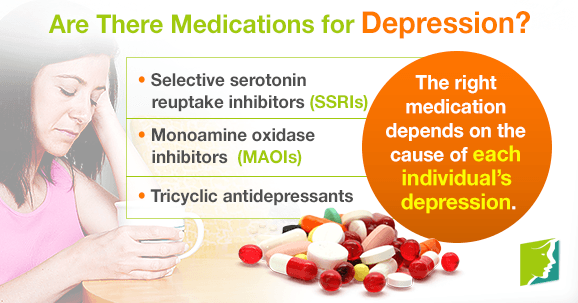Depression affects many people; estimates predict as many as one in ten Americans. It is highly debilitating, affecting all areas of life. Fortunately, the disease is treatable, and there are a wide range of methods to cure it, with medications being one option. Read on to find out more about common medications for depression.
What Is Depression?
Depression means that the sufferer is in a constant state of sadness or lethargy that does not go away without external intervention. It can sometimes be in response to a certain trigger, but is also just as likely to have no apparent cause. There are many causes of this condition, including hormonal imbalances, changes in brain chemistry, and lifestyle habits. Women are statistically twice as likely to develop depression as men, and the risk also increases with age, meaning middle-aged women are a very high-risk group. For someone with depression, even the thought of carrying out routine tasks is daunting; thus, it can affect motivation to participate in normally everyday activities.
Medications for Depression
Many of the conventional medications for depression address chemical and hormonal imbalances, and the effectiveness of each medication varies depending on the cause of each individual's depression. Some of the most commonly-prescribed medications are explained below.
Selective serotonin reuptake inhibitors (SSRIs)
Lack of serotonin in the brain is one of the primary causes of depression, and often, a rebalance of the neurotransmitter will improve mood. Generally, what happens is that serotonin is reabsorbed by the brain, which causes depression because there is not enough left to produce the neurotransmitter's natural mood elevating effects. SSRIs reduce depression by inhibiting this reabsorption, allowing the neurotransmitter to do its job. However, there can be adverse side effects, such as addiction, nausea, and shaking.
Monoamine oxidase inhibitors (MAOIs)
MAOIs work in a similar fashion to SSRIs, but they deal with additional neurotransmitters that are known to affect mood: norepinephrine, serotonin, and dopamine. The enzyme monoamine oxidase removes these neurotransmitters from the brain. When this enzyme is stopped with inhibitors, the levels of neurotransmitters become stabilized. Some people experience nausea, dizziness, or drowsiness as a result of taking MAOIs.
Tricyclic antidepressants
This medication for depression works by actually increasing the levels of mood elevating neurotransmitters norepinephrine and serotonin, and it also blocks acetylcholine, a neurotransmitter that is linked to depression in high amounts. As with most medications, this also comes with a risk of side effects, including a dry mouth, blurred vision, and constipation.
Although medications for depression have proven helpful to countless sufferers, they should only be used in the smallest effective dose, as side effects can ensue. In general, a doctor will prescribe medications for depression as part of a larger strategy that could include things like talking therapies and lifestyle changes, which will produce longer-lasting effects. It is important never to take depression medication without first talking to a medical professional. Read about dealing with depression during perimenopause.
Sources
- Centers for Disease Control and Prevention. (2012). An Estimated 1 in 10 U.S. Adults Report Depression. Retrieved November 3, 2014, from http://www.cdc.gov/features/dsdepression/
- Depression Alliance. (2014). Information. Retrieved November 3, 2014, from http://www.depressionalliance.org/information/
- FDA Office of Women's Health. (n.d.). Depression. Retrieved November 3, 2014, from http://www.fda.gov/downloads/ForConsumers/ByAudience/ForWomen/FreePublications/UCM182083.pdf
- Food and Drug Administration. (2008). Depression--Medicines To Help You. Retrieved November 3, 2014, from http://www.fda.gov/ForConsumers/ByAudience/ForWomen/ucm118473.htm
- Mayo Clinic Staff. (2013). Monoamine oxidase inhibitors (MAOIs). Retrieved November 3, 2014, from http://www.mayoclinic.org/diseases-conditions/depression/in-depth/maois/art-20043992
- Mayo Clinic Staff. (2013). Selective serotonin reuptake inhibitors (SSRIs). Retrieved November 3, 2014, from http://www.mayoclinic.org/diseases-conditions/depression/in-depth/ssris/art-20044825
- National Health Service UK. (2012). Clinical Depression. Retrieved November 3, 2014, from http://www.nhs.uk/Conditions/Depression/Pages/Introduction.aspx
- Yale Scientific. (2013). Uncovering the Biochemical Basis of Depression. Retrieved November 3, 2014, from http://www.yalescientific.org/2013/05/uncovering-the-biochemical-basis-of-depression/




